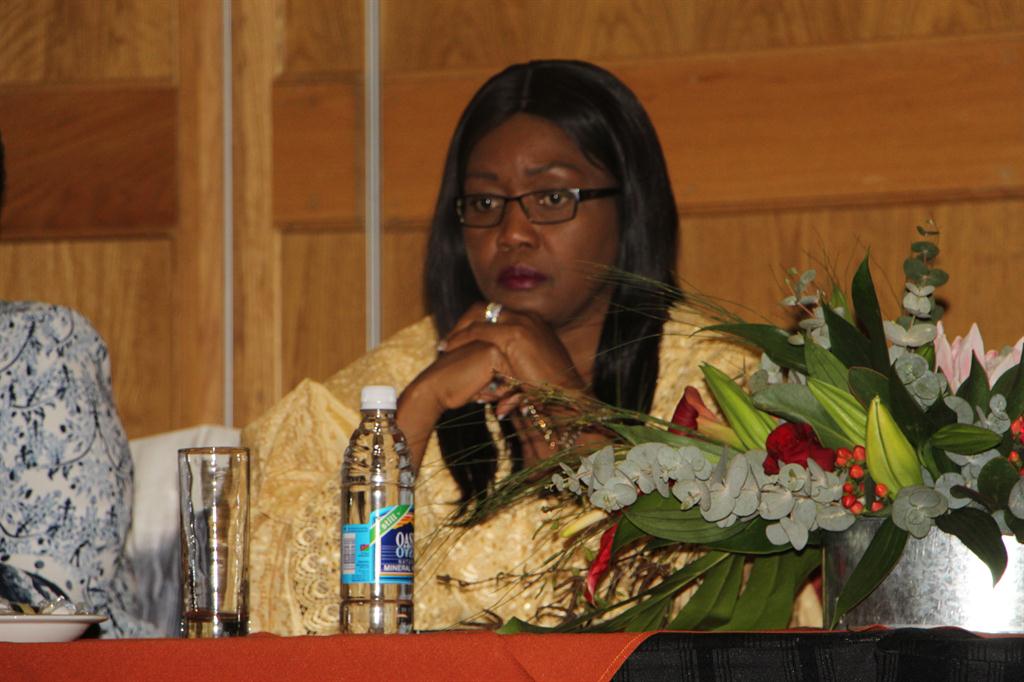Gender equality still not achieved
Despite some relief with the dawn of independence the Namibian woman is still haunted by gender-based discrimination.
This remark was made by Prime Minister Saara Kuugongelwa-Amadhila during the opening of the national gender advisory committee's high-level dialogue on the country's gender policy.
The one-day meeting, which took stock of the progress made in the implementation of the National Gender Policy and its plan of action, was attended by government minsters, regional governors and the chairpersons of the 14 regional councils.
The prime minister hailed Namibia's achievement of 47% women's representation in the National Assembly during the last election, but emphasised that more needed to be done.
“We all know that there are still gender-related issues that need to be addressed. These include high levels of gender-based violence, mostly the most heinous of its kind, high prevalence rates of HIV among women, high unemployment rates among youth, maternal mortality rates that are still high, teenage pregnancies, child marriage, boy- and girl-child school dropout rates, and disturbingly, high poverty levels among female-headed households,” the prime minister said.
She said addressing these challenges required a greater focus and a coherent and multi-stakeholder, multi-sectoral approach.
She added that this should emphasise the implementation of the National Gender Policy at all levels, such as at constituency, regional and national levels, in order to ensure that gender responsive policies and programmes do not leave anyone out and that development strongly addresses people's strategic and practical gender needs.
“I would also like to emphasise here that ensuring gender equality and women empowerment as fundamental dimensions of advancing human development is our collective responsibility.”
She urged attendees to act as the advocates for a multi-sectoral approach for gender equality and women empowerment programmes in Namibia and to adopt a gender perspective when making decisions, formulating policies, allocating resources, and especially in parliament when reflecting on new draft legislation.
“Equally, a gender perspective is necessary in our planning and budgeting processes, both at national and regional levels. We should not become narrow or mechanical in our approach, but rather emulate the words of Kofi Annan who said: 'Gender equality is more than a goal in itself. It is a precondition for meeting the challenge of reducing poverty, promoting sustainable development and building good governance',” she said.
JEMIMA BEUKES
This remark was made by Prime Minister Saara Kuugongelwa-Amadhila during the opening of the national gender advisory committee's high-level dialogue on the country's gender policy.
The one-day meeting, which took stock of the progress made in the implementation of the National Gender Policy and its plan of action, was attended by government minsters, regional governors and the chairpersons of the 14 regional councils.
The prime minister hailed Namibia's achievement of 47% women's representation in the National Assembly during the last election, but emphasised that more needed to be done.
“We all know that there are still gender-related issues that need to be addressed. These include high levels of gender-based violence, mostly the most heinous of its kind, high prevalence rates of HIV among women, high unemployment rates among youth, maternal mortality rates that are still high, teenage pregnancies, child marriage, boy- and girl-child school dropout rates, and disturbingly, high poverty levels among female-headed households,” the prime minister said.
She said addressing these challenges required a greater focus and a coherent and multi-stakeholder, multi-sectoral approach.
She added that this should emphasise the implementation of the National Gender Policy at all levels, such as at constituency, regional and national levels, in order to ensure that gender responsive policies and programmes do not leave anyone out and that development strongly addresses people's strategic and practical gender needs.
“I would also like to emphasise here that ensuring gender equality and women empowerment as fundamental dimensions of advancing human development is our collective responsibility.”
She urged attendees to act as the advocates for a multi-sectoral approach for gender equality and women empowerment programmes in Namibia and to adopt a gender perspective when making decisions, formulating policies, allocating resources, and especially in parliament when reflecting on new draft legislation.
“Equally, a gender perspective is necessary in our planning and budgeting processes, both at national and regional levels. We should not become narrow or mechanical in our approach, but rather emulate the words of Kofi Annan who said: 'Gender equality is more than a goal in itself. It is a precondition for meeting the challenge of reducing poverty, promoting sustainable development and building good governance',” she said.
JEMIMA BEUKES





Comments
Namibian Sun
No comments have been left on this article